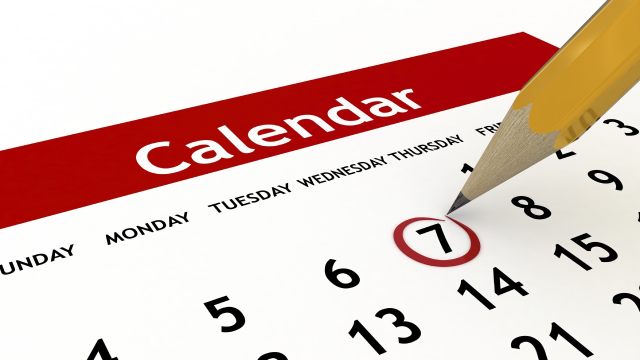
The Weekend as Reward
Most people who work from Monday through Friday look forward to the weekend as a time of rest. Our eyes are set on those two days as a time to unwind. The weekend dangles like a carrot before us as we plow through the week as if we’re plowing through a field.
Starting The Week With Monday
I was visiting with someone recently who told me they had set Monday as the start of their week on their computer calendars and mobile devices. That way, in a typical weekly display, it’s easy to see both Saturday and Sunday together and view at your entire weekend in a glance rather than going forward to the next week to see Sunday. This makes sense. In fact, this is common practice in many countries, and the International Standards Organization established Monday as the first day of the week (ISO 8601).
Monday is xīngqīyī (星期一) in Chinese, meaning “day one of the week”. Its name in Georgian and Syriac means “first day”. In all Slavic languages Monday’s perceived as the first day of the week. (source)
Starting The Week With Sunday
For religiously minded people, Sunday is the first day of the week and Saturday is the Biblical seventh day when God rested. The Sabbath has been observed for thousands of years by Jews and others who follow Biblical teachings:
“Shabbat (Hebrew: שַׁבָּת, “rest” or “cessation”) or Shabbos (Yiddish: שאבּעס) is the Jewish day of rest and seventh day of the week. (source)
The Week Beginning – Starting The Week with Saturday
A few months ago, I decided I would start my week on Saturday. This creates a “week beginning” of two days prior to the work week. It’s a more proactive way to look at the seven day cycle we call a week.
Rather than having a time of rest and reflection after the work week, it’s a time to energize, plan, and prepare for the week ahead.
This mindset is simply a different way of visualizing the week.
By placing Saturday as the first day of the week in computer calendars and mobile devices, this places a focus on these two days of rest at the beginning of the week, rather than at the end of the week. It may seem like a simple and seemingly small change, but it can change how you think about life.
Giving Attention to the Future Moments
Many people teach and believe that we should live in the moment. However, the quality of each moment is the outcome and fruit of our efforts and planning leading up to the moment. Living only for the moment or in the present is a sure recipe for diminished quality of future moments. Instead, by looking forward and planning a better future, one can enjoy life’s journey as each moment comes to us.
Planning Now = Pleasure Later
There are many examples from life where we see that discipline, self control, sacrifice, preparation, planning, and acting responsibly can pay big dividends in the future:
- Fitness. Taking time to exercise at the beginning of the day makes a person more alert and energized throughout the day. That short investment of time pays off throughout the day.
- Finance. In the area of finances, saving money now creates a better future.
- Nutrition. We don’t typically get any immediate gain or benefit from what we eat, but in the future our healthy choices now will produce a newer happier you.
- Relationships. Investing in relationships along the way is a much better choice than putting out relationship fires later.
In every area of life, we can look for ways to make the future better by what we do now. So, it’s this philosophy and mindset that are served by having two days set aside as a week beginning when we can intensionally plan ahead and make the coming week better than the previous one.
